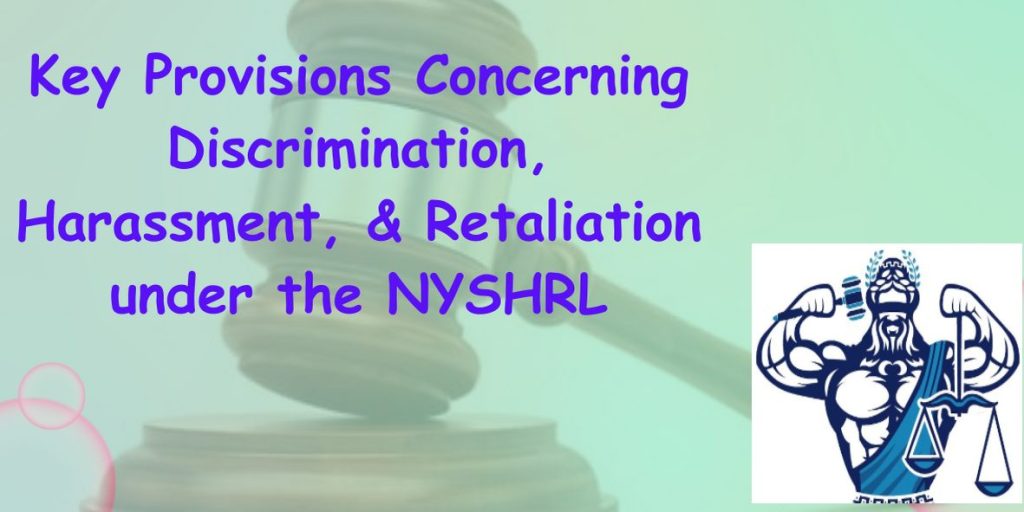Here at the Law Office of Vincent Miletti, Esq. and the home of the #UnusuallyMotivated movement, we take pride as a resilient and dependable legal services firm, providing such services in both a traditional and online, web-based environment. With mastered specialization in areas such as Employment and Labor Law, Intellectual Property (IP) (trademark, copyright, patent), Entertainment Law, and e-Commerce (Supply Chain, Distribution, Fulfillment, Standard Legal & Regulatory), we provide a range of legal services including, but not limited to traditional legal representation (litigation, mediation, arbitration, opinion letters, and advisory), non-litigated business legal representation and legal counsel, and unique, online legal services such as smart forms, mobile training, legal marketing, and development.
Still, here at Miletti Law®, we feel obligated to enlighten, educate, and create awareness, free of charge, about how these issues and many others affect our unusually motivated® readers and/or their businesses. Accordingly, to achieve this goal, we have committed ourselves to create authoritative, trustworthy, & distinctive content. Usually, this content is featured as videos posted on our YouTube Channel https://www.youtube.com/channel/UCtvUryqkkMAJLwrLu2BBt6w and blogs that are published on our website WWW.MILETTILAW.COM. With that, the ball is in your court and you have an effortless obligation to subscribe to the channel and sign up for the Newsletter on the website, which encompasses the best way to ensure that you stay in the loop and feel the positive impact of the knowledge bombs that we drop here!
As the authoritative force in Employment Law, it only seemed right to introduce one of the many upcoming series in which we introduce a variety of topics that looks to educate and deliver in a manner that only Miletti Law® can. In this regard, this blog is Part XV of our ongoing series on “Trade Secret Misappropriation & Restrictive Covenant Claims.” In Part XIV, we hammered on “Tips for Seeking Injunctive Relief (Temporary Restraining Orders)” and mentioned that the primary goal of applying a TRO is to seek a short-term temporary relief until a court gets a chance when a fuller opposition and an evidentiary record of the opposing party have been considered. We also added that ideally, an employer should, as soon as it becomes practicable, seek a TRO if they have a good-faith reason to believe or hard evidence regarding an employee’s engagement in conduct that could lead to loss of key clients, imminent risk of confidential information/trade secret(s) misappropriation, or jeopardize the interests of the business.
In order to continue with the discussion, we have switched gears to focus on the practical and legal considerations behind seeking injunctive relief in our blog titled “Legal & Practical Considerations for Seeking Injunctive Relief” and Part XV of the series.
Legal & Practical Considerations for Seeking Injunctive Relief
For starters, in order to demonstrate to and convince a court that the situation at hand warrants emergency relief, the employer should seek a TRO and/or preliminary injunction promptly. By seeking injunctive relief promptly, the court would be put to notice that in the absence of injunctive relief, the movant would suffer irreparable harm. Importantly, in order for the full range of the potential tortious conduct and/or breaches to be understood, the employer should also include an expedited discovery request alongside the TRO or preliminary injunction application.
However, while they may turn on the suspected misconduct and the specific employee, a myriad of practical and legal considerations should be factored in when an employee wishes to seek a preliminary injunction or TRO against a former employee. No employer should underestimate the question of succeeding in a lawsuit, particularly should one still seek, based on an existing non-compete agreement, to enjoin the employee.
For example, let us say that an employer learns that their employee has accepted employment in a similar position with a direct competitor, but this employee is non-unique and is still tied to a non-compete agreement with them. This being an issue of concern and a dilemma for every employer, the answer is that the employer should consider the applicable law and all feasible and applicable circumstances and facts of the case. On the one hand, the employer may wish, despite not having evidence of actual confidential information and/or trade secret misappropriation, to seek an injunction to prevent the employee from breaching the non-compete due to one or more protectable interests they may feel warrants protection. On the other hand, the employer must consider the likelihood of succeeding in obtaining a preliminary injunction or a TRO. The bottom line is that most jurisdictions recognize that employers have protectable interests in client relationships and customer goodwill and, thus, based on the applicable law and advisement of their counsels, employers should go ahead and seek the preliminary injunction or a TRO.
In the next blog titled “The Inevitable Disclosure Doctrine vs. Seeking Injunctive Relief” and Part XVI of this series, we will shift our focus on the doctrine of “Inevitable Disclosure,” another crucial area of law that every employer should not overlook when bringing claims for trade secret misappropriation and/or restrictive covenant.
In the meantime, stay tuned for more legal guidance, training, and education. In the interim, if there are any questions or comments, please let us know at the Contact Us page!
Always rising above the bar,
Isaac T.,
Legal Writer & Author.
 314-648-2586
314-648-2586 CALL US NOW
CALL US NOW








